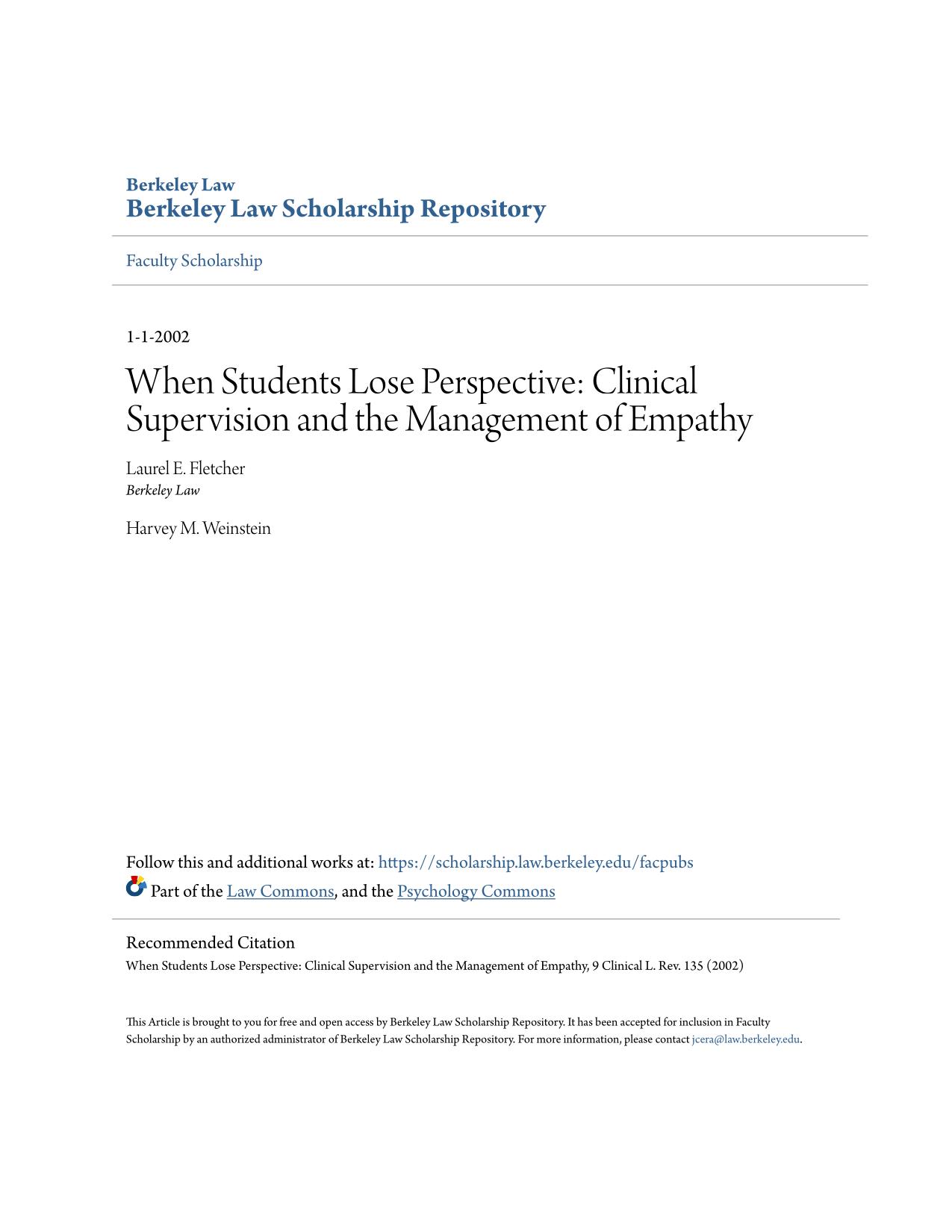When Students Lose Perspective: Clinical Supervision and the Management of Empathy
Download PDFSummary
This article examines the opportunities and problems that arise in the process of lawyer-client communication. The authors suggest that empathic communication is a critical dimension of lawyering and that without empathy, much valuable affective and cognitive knowledge about the client’s case may be lost. A critical first step in this process involves identification with the client. In the article, the authors clarify how identification differs from empathy and challenge the oft-cited concern of “over-identification.” In addition, they examine those situations in which identification with a client may have negative consequences for representation. These issues are explored in the context of how law students and lawyers manage the emotional content of their work. Addressing these concerns provides an opportunity for clinical legal educators to enhance the supervisory process by assisting law students to recognize, discuss, and interpret their emotional experiences of working with clients. The authors propose a model of clinical supervision that supports the development of skills that draw upon the empathic experience of interviewing. Finally, the article draws attention to the connection between these so-called “soft” skills and the impact of the lawyer’s career on professional satisfaction and well-being.
